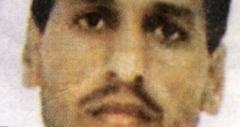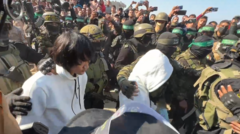In a significant development amid ongoing conflict, the Rafah border crossing between Gaza and Egypt has reopened to permit the exit of sick and wounded Palestinians, following a prolonged closure that lasted more than eight months. This reopening was a crucial element of a ceasefire agreement forged between Israel and Hamas and aims to alleviate the humanitarian crisis in the besieged enclave.
Gaza-Egypt Border Reopened: A New Dawn for the Wounded

Gaza-Egypt Border Reopened: A New Dawn for the Wounded
The Rafah crossing opens after an eight-month closure, allowing the sick and wounded to leave Gaza.
The Rafah crossing has been a vital lifeline for the people of Gaza, facilitating movement to the outside world. Since the closure, many Palestinians found themselves trapped with limited access to medical care. With the new ceasefire, which includes a 42-day truce and an exchange of hostages for prisoners, officials are hopeful that these measures will bring an end to the devastating 15-month-long war in Gaza.
Israel agreed to the reopening of the crossing following the release of the last living female hostages by Hamas on Thursday. As part of the agreement, Israel will allow up to 50 sick and wounded individuals per day to evacuate, alongside Palestinian women and children needing medical assistance. The first group of evacuees is set to depart as soon as Saturday, marking a critical moment for those in desperate need.
The newly established security arrangement involves cooperation between Israel, Egypt, and the Palestinian Authority, which is situated in opposition to Hamas, following its long-standing governance of Gaza since 2007. Despite the complexities of the ongoing conflict, this development signifies a cautious step towards addressing humanitarian needs while navigating the intricacies of Middle Eastern politics.
As both humanitarian and diplomatic efforts continue, the Rafah crossing reopening may provide a glimmer of hope for many Gazans facing dire health crises and challenges ahead.
Israel agreed to the reopening of the crossing following the release of the last living female hostages by Hamas on Thursday. As part of the agreement, Israel will allow up to 50 sick and wounded individuals per day to evacuate, alongside Palestinian women and children needing medical assistance. The first group of evacuees is set to depart as soon as Saturday, marking a critical moment for those in desperate need.
The newly established security arrangement involves cooperation between Israel, Egypt, and the Palestinian Authority, which is situated in opposition to Hamas, following its long-standing governance of Gaza since 2007. Despite the complexities of the ongoing conflict, this development signifies a cautious step towards addressing humanitarian needs while navigating the intricacies of Middle Eastern politics.
As both humanitarian and diplomatic efforts continue, the Rafah crossing reopening may provide a glimmer of hope for many Gazans facing dire health crises and challenges ahead.























